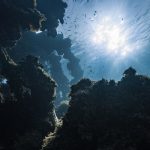 July 10, 2020 1:10 pm
Published by Climate Extremes
July 10, 2020 1:10 pm
Published by Climate Extremes
Ocean salinity could be an indicator of major rain events before IOD or ENSO events have peaked. This raises the prospect that long term forecasts for Australia could be improved by analysing sea surface salinity in the Indian and Pacific oceans.
 June 9, 2020 3:34 pm
Published by Climate Extremes
June 9, 2020 3:34 pm
Published by Climate Extremes
CLEX researchers find the inclusion of upper South Pacific Ocean variability significantly improved the predictions of ENSO and PDO modes in simple linear inverse models.
 April 1, 2020 10:00 am
Published by Climate Extremes
April 1, 2020 10:00 am
Published by Climate Extremes
A lot has happened over the past few months with the publication of high-profile and challenging research and the continuing growth, development and recognition for the RP4 team.
 March 13, 2020 9:49 am
Published by Climate Extremes
March 13, 2020 9:49 am
Published by Climate Extremes
A new study by CLEX researchers and colleagues shows that CMIP5 models as a group, when forced by observed sea surface temperatures underestimate, these atmospheric feedbacks on average by 23%. This underestimate can be linked to the wrong location at which climate models simulate the most important tropical circulation, called the Walker circulation.
March 2, 2020 3:07 pm
Published by Climate Extremes
Agus Santoso (UNSW). Overview of ENSO book. Sebastian McKenna (UNSW). IOD representation in CMIP models Zoom details: Join from PC, Mac, Linux, iOS or Android: https://unsw.zoom.us/j/825572965
 July 18, 2019 3:00 am
Published by Climate Extremes
July 18, 2019 3:00 am
Published by Climate Extremes
In this project, we will investigate the links between precipitation extremes and the Interdecadal Pacific Oscillation (IPO), including its signature in El Niño–Southern Oscillation (ENSO) impacts, across tropical land regions.
 July 15, 2019 1:00 am
Published by Climate Extremes
July 15, 2019 1:00 am
Published by Climate Extremes
This project will use output from state-of-the-art climate simulations of the Last Millennium (850–2005 CE) to explore the long-term variability of an Australian climate driver of the student’s choice. The student will explore the natural variability of that driver to determine its long-term context, and compare with palaeoclimate reconstructions (proxies) where possible.
 June 15, 2019 7:16 am
Published by Climate Extremes
June 15, 2019 7:16 am
Published by Climate Extremes
An international team, led by Australian researchers from the ARC Centre of Excellence for Climate Extremes (CLEX) and the Institute for Marine and Antarctic (IMAS) studies, have published in Nature Communications the first global assessment of the major drivers of marine heatwaves.
 May 13, 2019 2:19 pm
Published by Climate Extremes
May 13, 2019 2:19 pm
Published by Climate Extremes
This study employs a new statistical approach to reconstructing ENSO which enables researchers to identify times in the past when palaeo-ENSO reconstructions are most robust. They found that ENSO reconstructions are most reliable from 1580-1700, and from 1825 to present.
 March 22, 2019 10:39 am
Published by Climate Extremes
March 22, 2019 10:39 am
Published by Climate Extremes
AMOS awards, international visitors, cross program research with the drought team, and multiple papers have made it a busy time for the Heatwaves and Cold Air Outbreaks Research Program.









